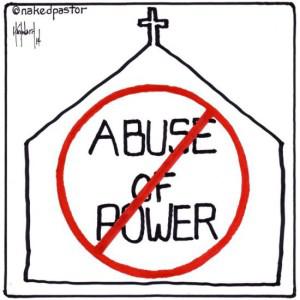|
John Howard Yoder’s sexual abuse: Asking the wrong question
By Hillary Kobernick
Editor’s note: This is a cross-post from Hillary’s blog, www.gatheringthestones.com, first published on January 30, 2015. Even though this week a Goshen College student was slapped by Jennifer Lopez, John Howard Yoder is still the biggest Mennonite celebrity we have. While at Pastors Week, I heard stories about how he would takes notes on a lecture in a foreign language, just for practice. Or how he could listen to a lecture and engage in conversation while writing a sermon. Or from students who said, “I didn’t grow up Mennonite, but I’m studying at AMBS because I read John Howard Yoder.” As the Mennonite Church dives into its first real attempt to name him as a serial abuser with a distorted sexual politic, one question surfaces over and over: “Can we still honor and use his work even though we now know he harassed and assaulted as many as 100 women?” I heard this question for the bajillionth time this week, talking to a Mennonite student at AMBS. He was one of those who came to the church by way of John Howard Yoder, finding a belief system he could truly resonate with. He mused, “I wonder how we respond to his work.” After some more thought, he said, “Yoder was brilliant. He’s such an articulate thinker and he lays such an important foundation for Mennonites. I think we can still redeem his work and use it to represent our church.” I asked him if he was, as he seemed to be, a straight white male with no history of sexual abuse. He said he was. Then I got angry, and with less grace than I wished I had. “That is not your question,” I said. “You do not get to decide how we use Yoder’s scholarship. You don’t get to answer anything. Your job, right now, is to sit down and listen to the women who were abused. Women who are in their 60’s and 70’s now who have spent 40 years keeping their mouths shut. They took the brunt of the pain. They suffered for us, among us, so we could maintain our rosy-eyed ignorance about the man himself. Why don’t you bring this question to them, and let them answer it in their own good time? It might take years, but it’s not your job to answer.” Everybody wants an answer to that question. And so everybody assumes that they are qualified to answer. Most of us are not. John Howard Yoder died when I was 9. I never knew the guy. I’m not trying to say how we use his work when I can look to another pastor who lives 30 minutes away, experienced his abuse, and ask her: Where do we go from here? And accept her answer, even if her answer is: “I’m not ready to say yet.” This is the theology of reconciliation. When someone is hurt, or abused, they are violated. Their power is taken. The only thing they have left is the power to forgive. (This is articulated beautifully by Wilhelm Verwoerd in his Ph.D.) When we try to decide for ourselves what to do about Yoder, we deny the victims the power to forgive. We all individually will have to make up our own minds about Yoder, but in our rush to closure and conclusion, let’s not forget: there are other people who have more horses in this race than we can imagine. And we ought to hold our own for a while longer. The “What to do about Yoder” question bothers me for another reason, too, and I am going to get angry for a moment: You’re asking the wrong question. This isn’t about Yoder. It is, because he’s ours, but he’s the particular story of a narrative that has repeated over and over. To ask how we treat Yoder’s work is an oversimplification. How do we treat Martin Luther King Jr.‘s work, knowing his many affairs? How do we treat Gandhi? What do we do with John F. Kennedy? What to do with Bill Cosby and Jian Ghomeshi? Don’t bullshit. This isn’t about Yoder. This is about men in power who think they are untouchable and so they can touch whatever they want. Don’t pretend this is a one-time incident. This is something I have to consider whenever I meet men in power, in the workplace or social settings or in the other communities I’m involved in. This is about a system where I constantly have to think six steps ahead and say: “If he does something wrong, will anyone believe me?” Come now. This isn’t about Yoder. This is about the whole damn patriarchy and it’s guilty as hell. Excuse me for getting angry. But you’re asking the wrong question.
|
.
Any original material on these pages is copyright © BishopAccountability.org 2004. Reproduce freely with attribution.

